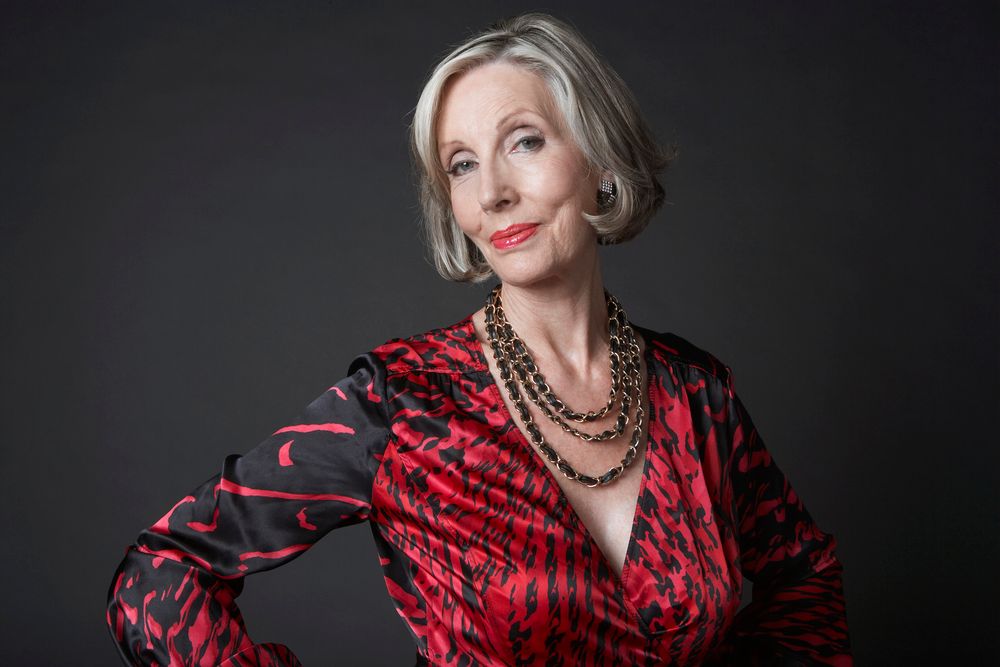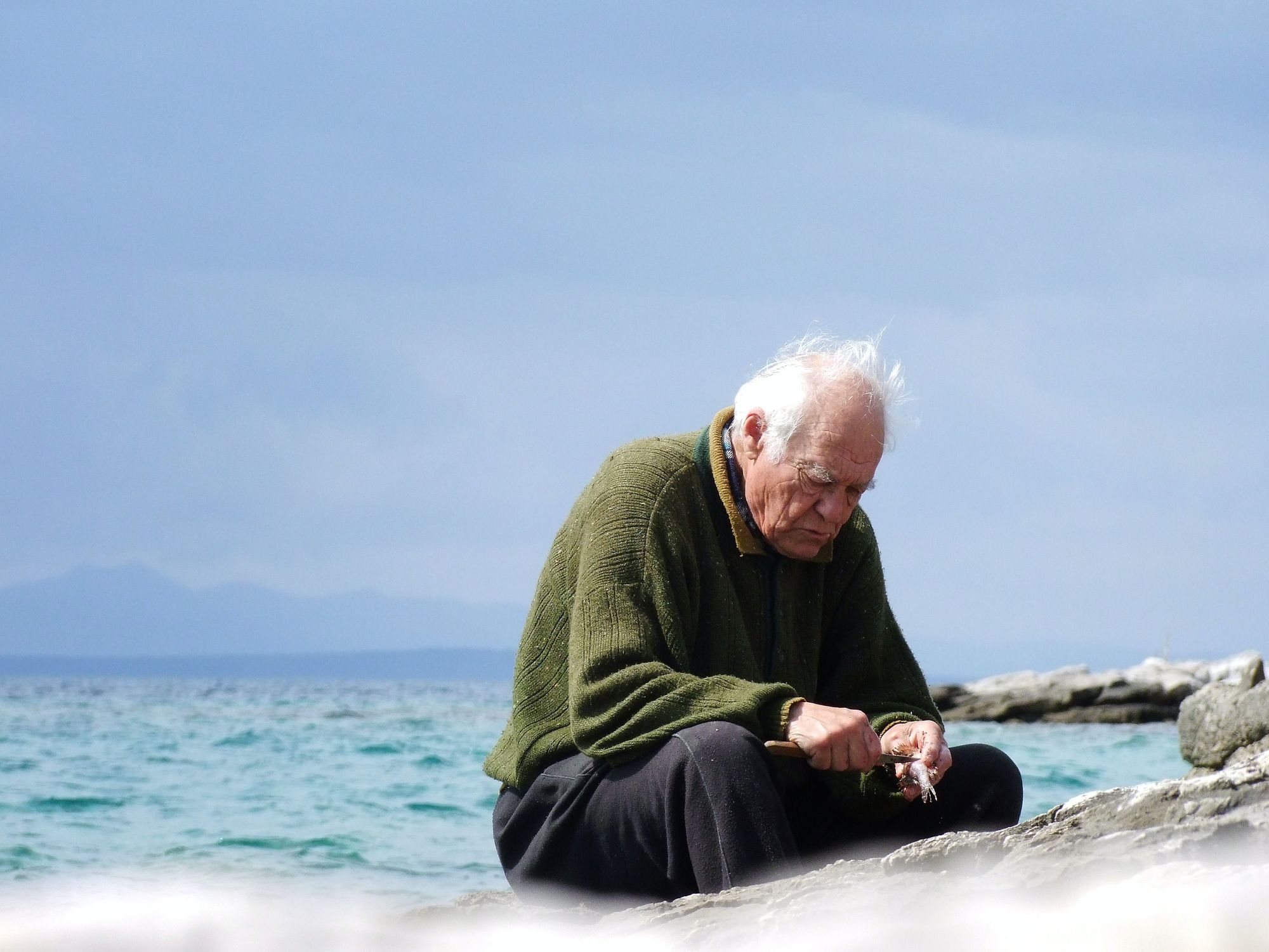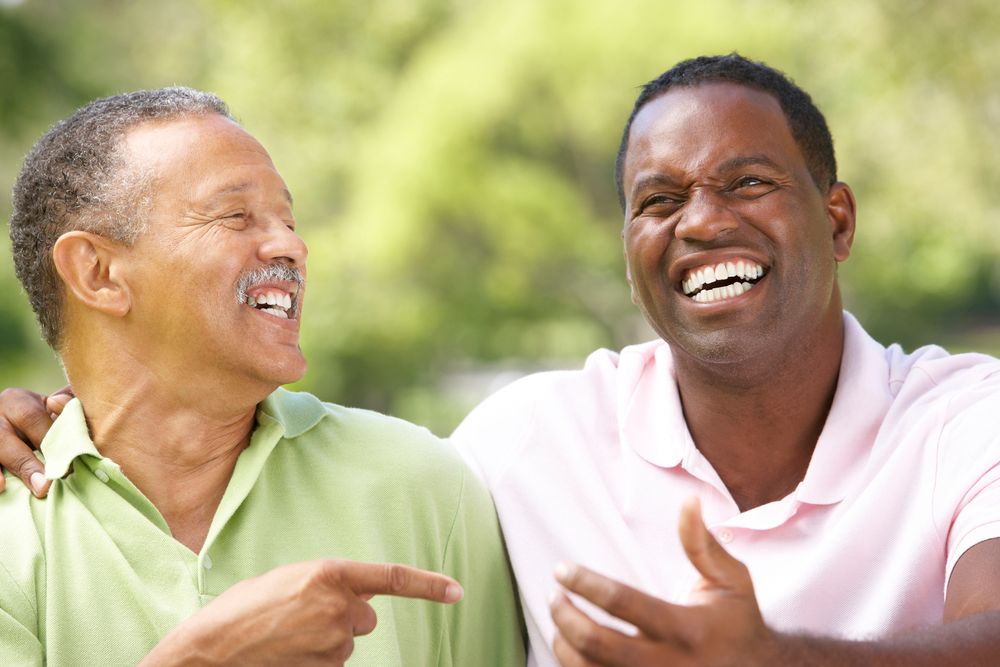
You can put a spring in your step or a noose around your neck for the next five decades. What will you choose?
This morning I was reading some comments posted on The Oregon Horse Forum which really underscores the power of how we use words to talk ourselves into an early grave. This is by no means a condemnation of the writer. Rather I am going to use their comments to make a point about how you and I buy into ageism without even thinking about it, and what that can and often does mean to a foreshortened, far less vivid life.
Here is what she wrote:
In my younger day it was not a big deal for me to rehab a thoroughbred and make them into a good riding horse. Lady taught me I was too damn old for that and I learned I lost courage as I ventured into my 40s.
Since her sentiments are far too common, and how we bracket ourselves as "too damned old for that" in our forties, I have to call this out. The cost of this is horrific, not just to her but also society. It's also a simply terrible message if she has kids especially a girl child, for those young minds absorb this messaging early. In effect, she is training her children to die young, as well, by example.
You and I make critically important choices about how we're going to age right about mid-life. That is where the blush, bloomies and zoomies of youth can start to fade, but only if we allow them to. Dear god I'd LOVE to only be forty again, but still, I would have no issue whatsoever in taking on a spirited horse, which is what I do every time I head out into the hinterlands to ride overseas.
Now before you bark at me that what I do is nothing like training a spicy Thoroughbred, it's the rest of my life, and that of men and women just like me in their sixties and beyond, that makes those spicy rides possible. For I do get thrown, I do get kicked, it's inevitable. What isn't is my ability, your ability not only to handle that with confidence, but with great joy because your body allows you the options.
But not if your brain and that awful, nagging internal negative bitch that we have inside convinces us that we're too old once we hit our forties.
While it's fair to challenge that I don't know what this woman does to be fit, if I take only her words at face value, my impression is, not much.
I would posit that up here in Oregon, we have hiking trails and camping spots and places to run and kayak and ride bikes, all of which is pure fun and joyful. All of which is as available to her as it is to me. The other day I was out on Spencer Butte, and I was passed by a woman running at full speed on the way back down, her long grey hair flying in the breeze. Clearly not even close to forty. I grinned inside, watching her. Not much later I was doing precisely the same thing. You see my point. We largely CAN take better care of ourselves, assuming facilities are available, we can get to them, and afford them if cost is involved. Even if not, we can always walk, if our attitudes haven't completely crippled us for life.
For when we commit ourselves to strength training, which can come in myriad forms (like farm work, kindly) and endurance or aerobic work, those twin trees form the basis against which we can lean far later into life when we most assuredly need them more.
When we don't care for those trees, it's very much like sticking a happy, eager sapling into the soil of your yard and never bothering to water or fertilize it, expecting it to grow in to a great spreading oak in eighty years.

All living things in Nature need nurturing. We do most especially. That begins in the mind. What we feed our attitudes becomes our truth. If our personal "truth" springs from the godawful ageism lies that are so widely spread (fear sells, and it works, just look around), then we have effectively condemned ourselves to early death and decrepitude for no other reason than we stopped caring enough about ourselves.
While I am quite sure this woman would take umbrage at my interpretation of her comments, I stand by them. To that: I've quoted this research before, for good reason, for the professors absolutely underscore these points for me.
Professors Levy and Slade make it abundantly clear that how we frame the aging process has everything to do with how well we age. How we take care of our bodies, by seeing aging as simply the natural course of life offering us new challenges as we evolve, is part of the fun, not a burden. Changes in eating patterns, how much we consume, how we ensure better nutrition as we shift into the life-comformable stages of aging is simply being a good student of the skin suit we wear.

However, being a far better steward of our attitudes alone will drive those commitments.
Societal-driven fears of aging, being alone, being isolated, dismissed and unloved all feed the fears of being an elder orphan, a term so perfectly suited to scare the holy shit out of all of us as we age, we are guaranteed to greet each passing decade with dread. That sells a lot of awful stuff, which further feeds our need to be coddled as we cripple ourselves.
We have dueling arcs in our lives: beginning in our mid-twenties, Nature designed us to begin to deteriorate (key: without maintenance) fairly swiftly. Muscle deterioration and lung capacity begin to take a hit year after year and are in steady decline. She has decided our best reproductive age, and after that, she has decided that we're done here. That's one arc.
The other arc, which is the part over which you and I have enormous influence, is the mental and emotional responsibility for said maintenance. While there are inevitable challenges, as there are with all living things on earth, some of us are more naturally hale, some prone to illness, genetics have a part to play. But genetics aren't an early death sentence every single time.
In fact, genetics, despite their popularity as an excuse, actually have only about five percent influence on our overall health, according to this:

From the article:
"Simply put, DNA is not your destiny, and SNPs are duds for disease prediction," said David Wishart, professor in the University of Alberta's Department of Biological Sciences and the Department of Computing Science and co-author on the study. "The vast majority of diseases, including many cancers, diabetes, and Alzheimer's disease, have a genetic contribution of 5 to 10 per cent at best."
The study also highlights some notable exceptions, including Crohn's disease, celiac disease, and macular degeneration, which have a genetic contribution of approximately 40 to 50 per cent.
"Despite these rare exceptions, it is becoming increasingly clear that the risks for getting most diseases arise from your metabolism, your environment, your lifestyle, or your exposure to various kinds of nutrients, chemicals, bacteria, or viruses," explained Wishart.
Man I hate to burst your excuse bubble, but there's the science. For my part that is terrific news.
Genetics can most certainly put some hard obstacles in our path, like one lively woman, now 73, Dana, who found herself with a rare liver disease, and spent 11 years fighting it, getting a transplant and then getting back on her feet. She was an athlete before, she still is today, albeit with some moderation. The point is that she fought back and won.
Our bodies, as we age, are superbly designed to thrive, as long as the body is given good hard regular work, nutrition appropriate for our unique bodies and our changing selves, and an attitude that supports those efforts. Ageism committed against ourselves, in our self talk, (I'm too old for that, I can't do that any more, people past forty just aren't able to do that any more) are crimes against ourselves, for we leak out our lifeblood in giving up.
If you and I are starting exercise late in life, there are so very many options. Among the gentlest are yoga and water aerobics, many of which are offered at community centers in many neighborhoods and cities. They are beginning to open as vaccines are making life slightly more normal. Sidewalks and hiking paths are largely free, and you can I can do all kinds of work at home in our own living rooms.
The terrific author Ashton Applewhite has made our age-hate, which becomes self-revulsion, her life's mission:
“Fear of dying is human. Fear of aging is cultural.”
― Ashton Applewhite, This Chair Rocks: A Manifesto Against Ageism
Being forty is child's play. Try being eighty. Try being one hundred. Those who have made it that far likely have a shared secret: they don't see themselves as ancients. They don't act, like and talk like "old people." Therefore they are communicating both to themselves and all their cells that they expect to be hale, hearty and engaged until it's their time.
If right now, at any age, isn't your time, then when the hell IS your time? If you struggle with angst and worry until you finally grow mature enough to realize how silly it all was, only to struggle with angst and worry that now that you're forty (or fifty or whatever) your life is now OVER, and it's all downhill from here, what on earth is the point of being alive?
I cannot speak for you or anyone else, just for myself. I find it unspeakable that we would buy into the vicious and awful marketing that we are useless after forty. That effectively leaves us hanging on a limb, slowly dying for the rest of our natural lives, helpless in the face of aging's wrath.
You really wanna buy into that bullshit? Up to you. For my money, I surround myself with people who do not have time to get ancient. They are aging, for aging is inevitable. Decrepitude, self-hate for a few wrinkles, is a choice.
Which is why, when I finish this article, I am on my way to a two-hour gym session. Then to my chiropractor. And I will head out for run later, and during the day I will do pullups and balance work and situps and all kinds of activities to keep my body youthful and strong at 68. No pills, no magic, no potions. Just good hard work.
Which is why this Sunday, as I do every Sunday until I am back on the road again, I will be working with a huge, 1800-lb horse. I am hardly too old for this shit.
You don't have to be, either.

Comments powered by Talkyard.